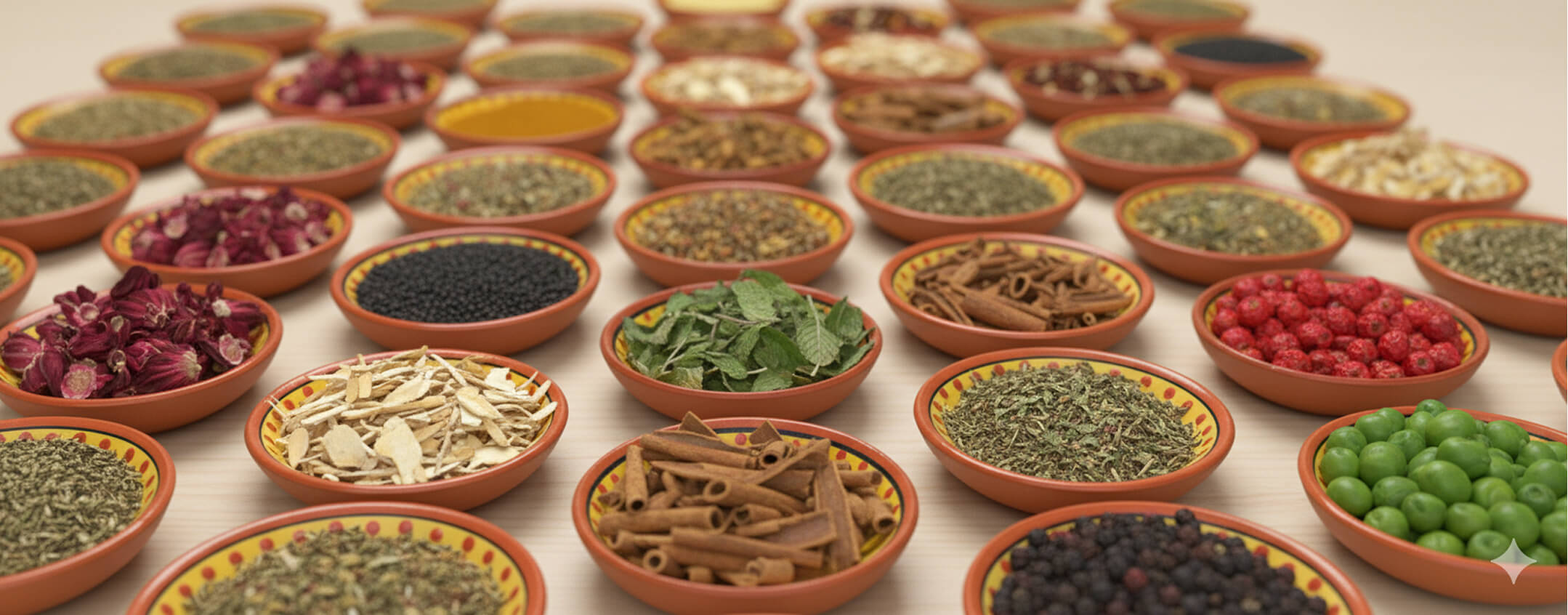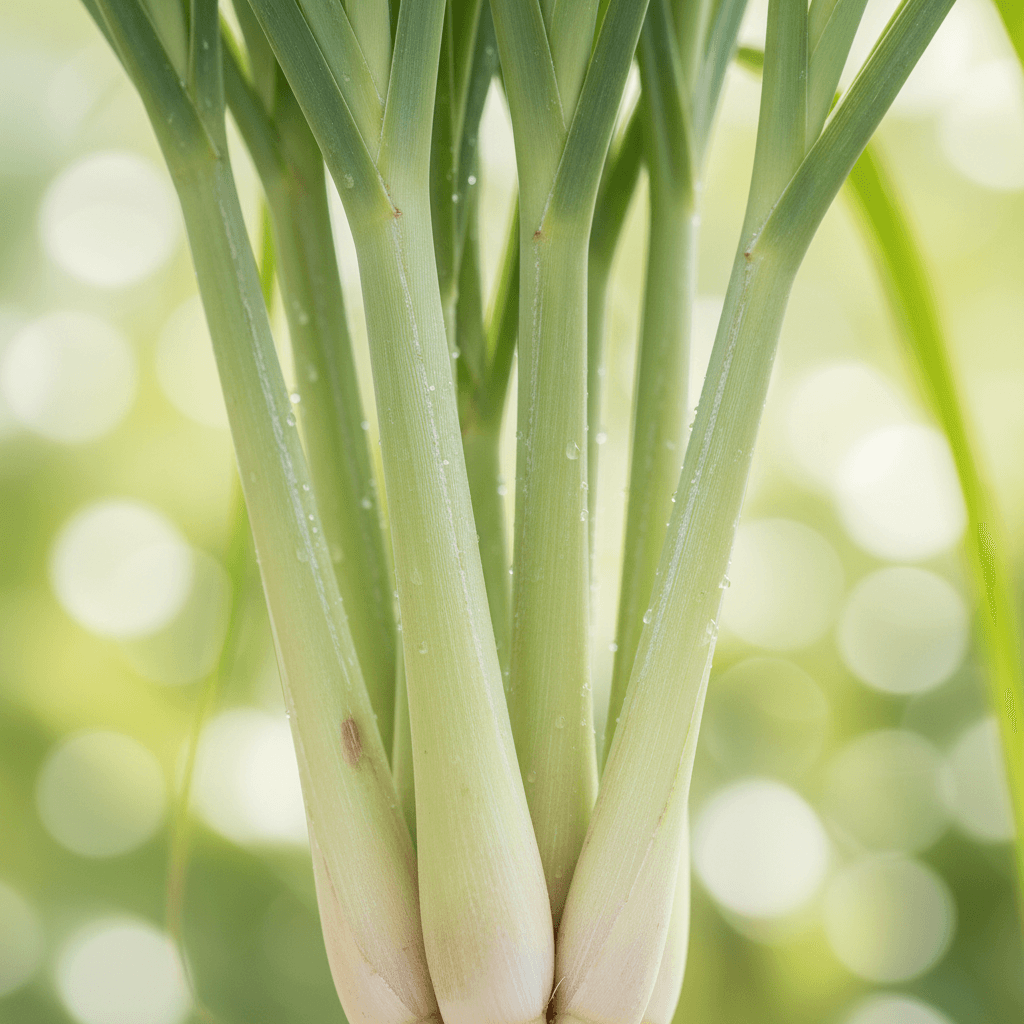Lemongrass
Cymbopogon Citratus

Herbs

Lemongrass
- Antimicrobial
- Anti-inflammatory
- Antioxidant
- Carminative
- Stalks
- Leaves
- Fresh
- Lemony
- Slightly sweet
- Cooling
- Drying
- Digestive health
- Pain relief
- Stress reduction
- Skin health
- Fever management
Lemongrass, with its tall, aromatic stalks, is a tropical plant widely used in culinary and medicinal practices, particularly in Southeast Asia. Its fresh, citrusy scent and flavor make it a favorite in cooking, herbal teas, and aromatherapy.
Digestive Health: Lemongrass acts as a carminative, helping to ease indigestion, stomach cramps, and other digestive discomforts. Its ability to soothe the stomach and promote proper digestion makes it a valuable herbal remedy for gastrointestinal health.
Pain Relief: The anti-inflammatory properties of Lemongrass contribute to its effectiveness in relieving pain, such as headaches, muscle aches, and joint pain. It is often used in traditional medicine to reduce symptoms of arthritis and rheumatism.
Stress Reduction: Known for its calming effects, Lemongrass is used in aromatherapy to reduce stress, anxiety, and insomnia. Its soothing aroma helps to relax the mind and promote a sense of well-being.
Skin Health: Lemongrass’s antimicrobial and antiseptic qualities make it excellent for skin care. It can help treat infections, acne, and other skin conditions, and is commonly found in skincare products for its purifying and toning effects.
Fever Management: Traditionally, Lemongrass has been used to help reduce fever and cool the body, making it a useful herb for managing flu symptoms.
In cultural practices, Lemongrass is not only a culinary staple but also used in rituals and ceremonies for its cleansing and protective properties.
Incorporating Lemongrass into your daily routine can enhance your health by supporting digestive functions, soothing pains, and aches, improving skin health, and providing a calming, uplifting aroma.

